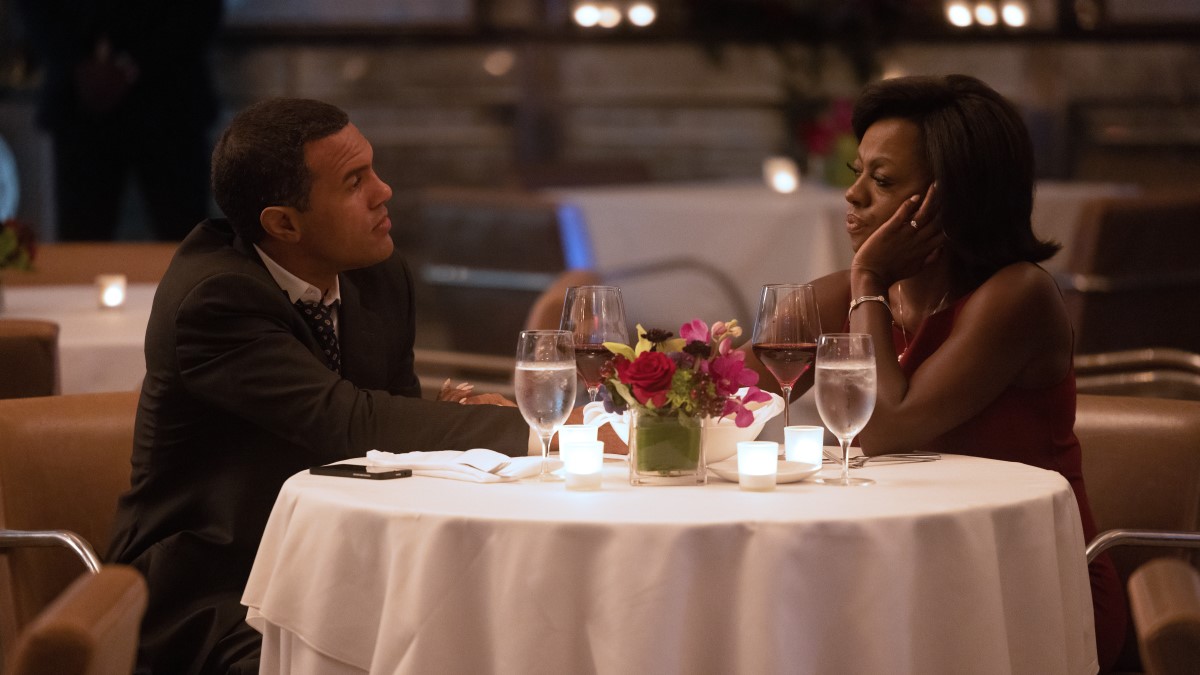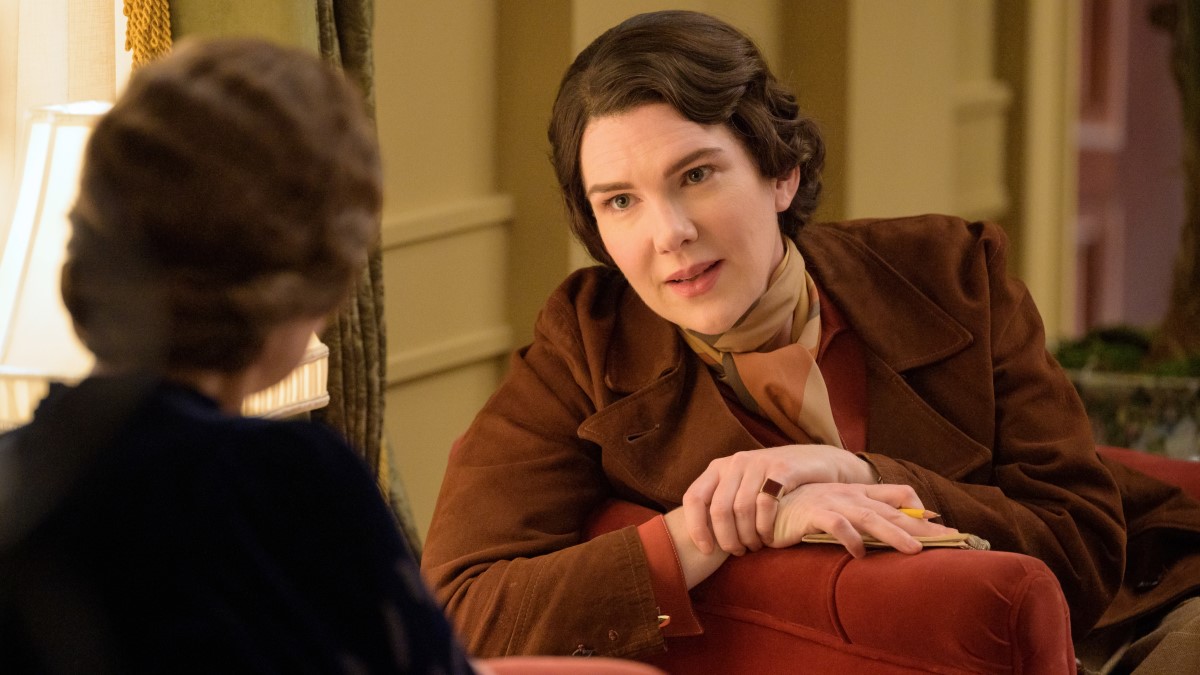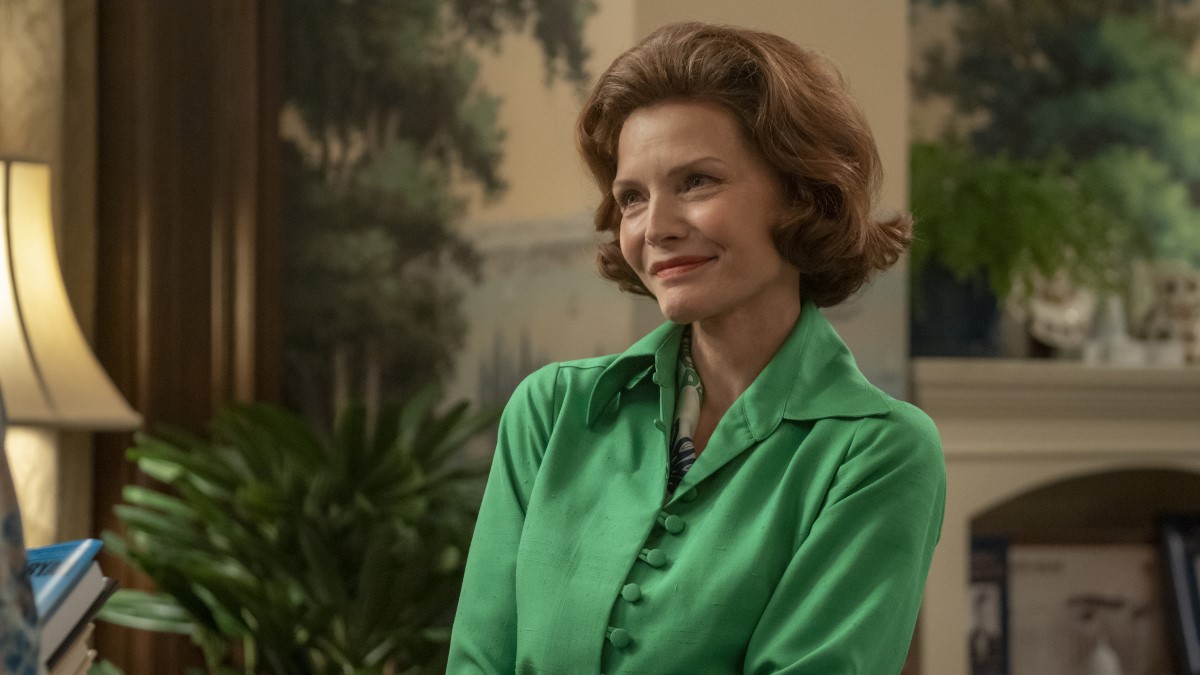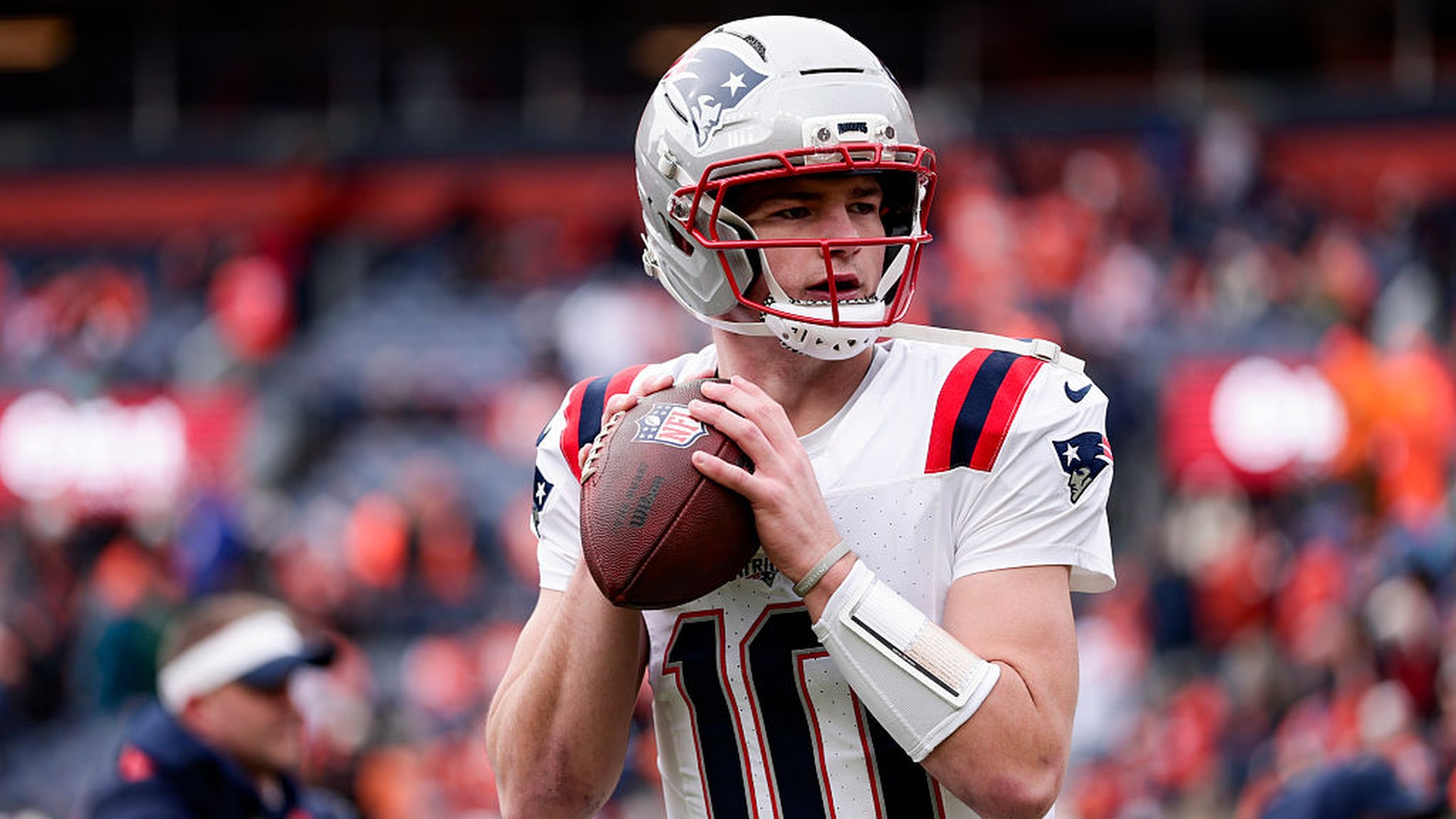What to Watch Verdict
A somewhat more focused episode is an improvement but there are still teething issues.
Pros
- +
Toggling between the eras is less jarring
- +
Private interactions with their husbands
- +
Some strong supporting characters
- +
Costume designer Signe Sejlund's excellent work capturing each period
Cons
- -
Unsubtle imagery and sound effects
- -
Gillian Anderson's false teeth are still distracting
- -
Some of the segues are tenuous at best
NOTE: This post contains spoilers for The First Lady season 1 episode 2 "Voices Carry.”
"This is your chance to start making history," is a piece of advice given to Betty Ford (Michelle Pfeiffer), but it could have been uttered in any of the three timelines depicted in Showtime’s The First Lady. After last week’s bumpy start, there are still some teething issues resulting from the narrative framework, however, toggling between timelines is more focused in "Voices Carry." Sure, some of the unifying themes are on the tenuous side, but when covering three disparate decades it requires a more universal approach.
Reluctance is the first port of call, which sees a resigned Betty watching Richard Nixon’s farewell speech to the nation. The clinking of ice in her boozy drink is unnecessary (seriously, this show is not subtle) when Pfeiffer’s eyes showcase her heavy mood. The same can be said when the Fords are packing up their Alexandria home and the camera lingers on the brochures of Betty’s sunny paradise dream. We already know she will have to put this on hold for her husband’s career without the pointed reference.
Whereas Betty was looking forward to the next stage of her life with Gerry (Aaron Eckhart) in retirement, Michelle Obama (Viola Davis) is finding out she cannot continue to work as she once did. The second episode focuses on the days leading up to and just after Obama's inauguration with one deviation that shows how Michelle took on an active role in the 2008 campaign. A date night in an empty restaurant (for security reasons) begins with a strategy talk as Barack’s (O-T Fagbenle) team thinks it will help his relatability if she uses her amazing public speaking prowess. This more active role starts off well, but a misinterpreted comment fuels the "angry Black woman" rhetoric.

Press attention is another thread running through each story. In the case of Michelle we see how it is used as a cudgel against her. But she isn’t alone in having to watch her words.
Some like Donald Rumsfeld (Derek Cecil) are concerned that Betty’s tendency to say what's on her mind is going to cause an issue. Rumsfeld wants her to be more like Pat Nixon (ie don’t rock the boat) and he puts Pat’s secretary in charge of reigning Betty in, which goes about as well as you can imagine.
Betty is happy to give the White House press comments and manages to avoid any gaffs on her first morning. It shouldn’t be shocking she is good at this as she is married to a career politician, yet she is treated like a ticking time bomb.
The latest updates, reviews and unmissable series to watch and more!
"I’m not thrilled about the fact my title refers to my sex rather than my skills," says Eleanor Roosevelt (Gillian Anderson) to pioneering journalist Lorena "Hick" Hickcok (Lily Rabe). This conversation about her new role is full of warmth and jokes about how "first lady" sounds like something a man would call his first wife.
Eleanor is comfortable in Hick’s presence and shares candid off-the-record comments about how she is to "smile, nod and gaze adoringly at Franklin." She then does an impression of this, which is silly and cute but also hampered by the false teeth that continue to distract. When Anderson played Margaret Thatcher in The Crown it took time to adjust to the voice and jaw acting, which could be the case here too.
One positive takeaway from this interaction is the effortlessness between the two women and a warm relationship that hopefully will be explored further. Eleanor is shown in so many situations in which she is either awkward (the conversation with the unemployed guy), fighting for her position or pushing down her true feelings. With Hick, she seems entirely herself. The only other glimmer we get of this is with Franklin (Kiefer Sutherland) after his inauguration speech goes over well.

In the lead-up, Franklin won’t let her contribute and instead, she has to snatch snippets of what they are planning when she can. Even in this resistant environment, Eleanor contributes and Franklin does give her credit in private. Basking in the post-inauguration glow it becomes clear there is still a lot of love between them and Eleanor compliments his ability to convey hope to a nation that is suffering one of its darkest hours.
Unlike the other two couples, the Roosevelts have separate bedrooms and their dynamic reads as one where the sexual fire has burned out. Earlier, Eleanor quips about "one of his girlfriends," so it's hardly a secret they have settled into a platonic rhythm.
Eleanor is not alone in challenging the "hostess" duties. Michelle is presented with several ideas that she bristles at, which include a garden project and a Vogue cover shoot. She refuses to become the "Black Martha Stewart" and goes head-to-head with Rahm Emanuel (Michael Aronov). She insists on naming her own chief of staff and causes she wants to champion. As with Eleanor, compromises are made and she also shares a relaxed moment with her husband.
One somewhat tenuous segue between timelines is a letter Michelle receives from Betty as she can’t attend the inauguration. It talks of Michelle being "forever part of history now" before shifting back to 1974 and Betty getting a phone call about a state dinner that is now on her calendar. This becomes the focus of the battle Betty doesn’t realize she is in as Rumsfeld wants her to cancel. Betty does, but changes her mind after running into an old friend. Nancy Howe (Judy Greer) convinces her state dinners are where important moments happen and after watching Betty fumble around the East Wing — surely she has been here before — it is lovely seeing her with a true friend. For the second week in a row, the Betty storyline is the most compelling of The First Lady trio and culminates in state dinner success.
Watch The First Lady on Showtime in the US and in the UK you can now stream it on Paramount Plus.
Emma Fraser spends most of her time writing about TV, fashion, and costume design; Dana Scully is the reason she loves a pantsuit. Words can also be found at Vulture, Elle, Primetimer, Collider, Little White Lies, Observer, and Girls on Tops. Emma has a Master’s in Film and Television, started a (defunct) blog that mainly focused on Mad Men in 2010, and has been getting paid to write about TV since 2015. It goes back way further as she got her big start making observations in her diary about My So-Called Life’s Angela Chase (and her style) at 14.


